If your German Shepherd puppy suddenly seems more timid or nervous than usual, you might be wondering what’s going on. Maybe they used to run up to everyone, but now they’re hiding behind your leg. Or loud sounds that never scared them before now send them running. You're not alone. This stage in your puppy's life is called a "fear period," and it's completely normal.
Puppy fear periods are short phases when your puppy may become more scared of things that didn’t bother them before. Even something as simple as a parked bike or a garbage can might seem scary to them during this time. It can be confusing, but the good news is, with the right support from you, they’ll get through it just fine.
Understanding puppy fear periods is important, especially for German Shepherd owners. GSDs are naturally alert and smart, but that also means they can become more cautious or even anxious when something feels different or unfamiliar. Helping your fearful puppy now will build their confidence and trust as they grow.
In this guide, we’ll walk you through what these fear periods are, why they happen, and how you can help your scared puppy feel safe and secure. Whether you're dealing with a puppy afraid of other dogs or wondering, “Why is my dog afraid of everything?”, you're in the right place.
Let’s get started by learning what puppy fear periods look like and what you can do to support your German Shepherd pup through them.
What Are Puppy Fear Periods?
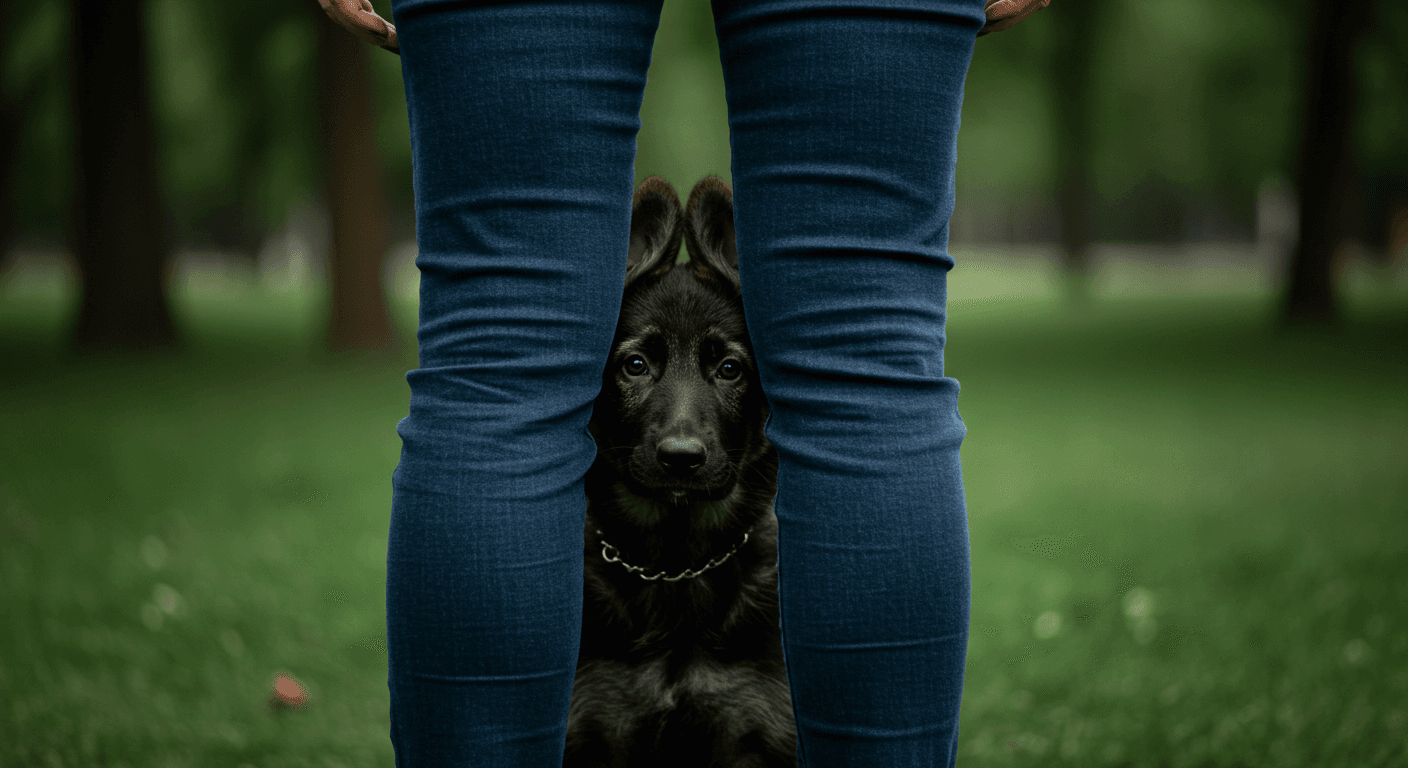
If you’ve noticed your German Shepherd puppy suddenly acting scared or nervous for no clear reason, don’t worry it’s perfectly normal. What you're seeing is part of what dog experts call "puppy fear periods." These are short stages in a puppy’s early life when they become extra sensitive to new things.
Puppy fear periods are natural parts of growing up, kind of like growth spurts, but for emotions. During these times, your puppy might be frightened by things they were fine with before like a new toy, a loud noise, or even a friendly neighbor.
There are usually two main fear stages in a pup’s first year. The first one comes around 8 to 11 weeks old, and the second fear period generally happens between 6 and 14 months. These are known as puppy fear stages, or fear periods in dogs. It’s part of how their brains are developing as they learn how to stay safe in the world.
For German Shepherds especially, these stages can feel more intense. Why? Because GSDs are working dogs. They’re smart, tuned in to their surroundings, and bred to be alert. That means they might notice and react to things more than other breeds during these fear periods.
It’s important to know that canine fear periods won’t last forever. Being aware of them helps you respond the right way. Instead of forcing your pup to be brave, you can support them with calm encouragement and gentle exposure.
Understanding what puppy fear periods are is the first step to being the best support for your German Shepherd during these sensitive times.
How to Recognize If Your Puppy is in a Fear Period
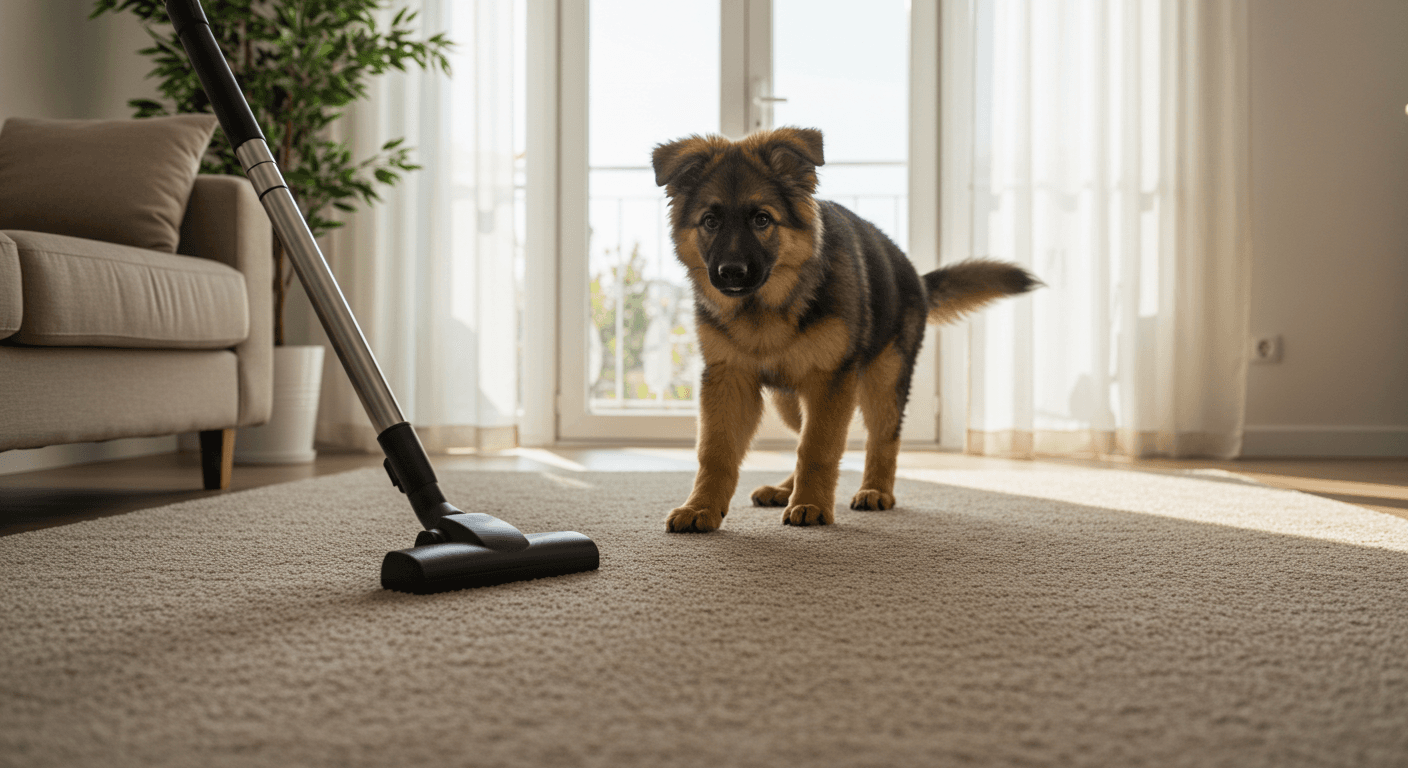
Puppies go through different phases as they grow, and one of those phases is called a fear period. If you’re a German Shepherd owner, understanding how to spot a fearful puppy during these times is key to helping them feel secure and confident.
A fear period usually occurs between 8–11 weeks and again around 6–14 months. During these times, your once brave and curious pup may suddenly seem unsure or timid. Even things they used to love like walks, car rides, or meeting new people might become scary.
Your German Shepherd might be showing signs of fear without you even realizing it. That’s why it’s important to learn what behaviors to look for. Recognizing fear early on can help you respond in a way that builds your puppy’s confidence instead of making things worse.
- Tucked tail – A scared puppy often tucks their tail between their legs.
- Ears back or flat – Their ears may pin back if they’re nervous.
- Backing away or hiding – If something frightens them, they might retreat or try to hide.
- Whining or barking – Some German Shepherds may make more noise when scared.
- Shaking or trembling – Physical shaking is a clear sign your puppy is afraid.
- Sudden fear of normal things – If your puppy is suddenly scared of the vacuum, garbage can, or a bike they’ve seen before, it could mean they’re in a fear period.
If you notice these signs, don’t panic. Fearful puppies need patience, calm support, and steady routines. In the next section, we’ll explore simple steps to help your German Shepherd through these tricky moments.
How to Support Your Puppy During Fear Periods
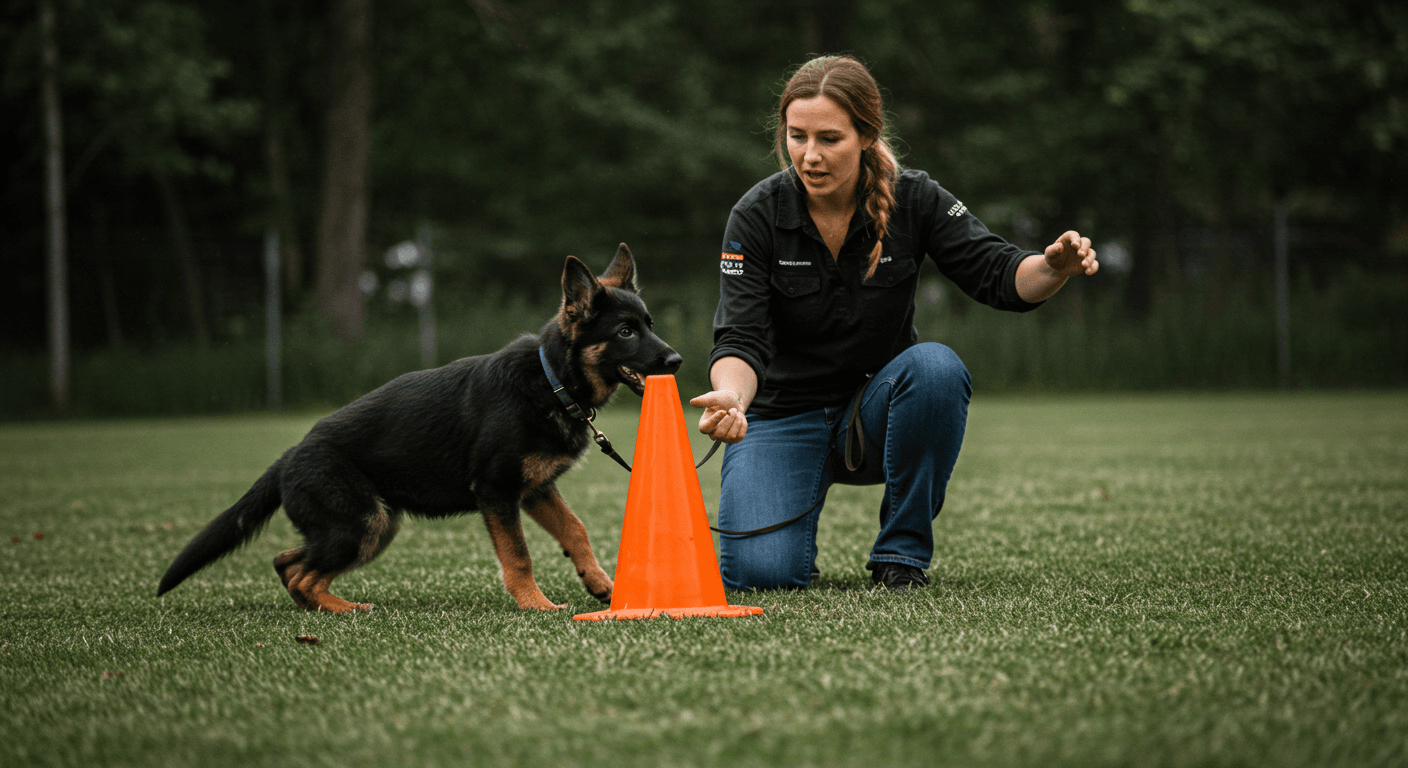
Puppy fear periods can be confusing and even a little scary especially if your German Shepherd puppy seems confident one day and suddenly timid the next. But don’t worry, this is a normal part of growing up! These fear stages are just how puppies’ brains develop as they learn about the world around them.
During these phases, which often happen around 8–11 weeks and again around 6–14 months, your otherwise brave pup might seem extra nervous. Whether it’s a trash can, a barking dog, or a bicycle, things that didn’t bother your puppy before might now cause them to panic. And that’s okay!
Here’s how German Shepherd owners can help their fearful puppy through these tricky times in a safe, loving, and calm way.
- Stay calm and confident – Your puppy will look to you for reassurance. If you’re calm, they’ll feel safe.
- Don’t force scary situations – Let your scared puppy choose how close to get to something. Stay nearby, but give them space.
- Use gentle, positive exposure – If your puppy is afraid of something, try showing it from a distance and rewarding calm behavior.
- Keep outings fun and short – Go on easy walks and avoid loud or crowded places. Focus on bonding and light training.
- Praise and treats work wonders – When your puppy is calm or brave, reward them with gentle words or a favorite treat.
- Avoid punishment – Never punish a scared puppy. This only builds more fear and breaks trust.
Remember, these fear periods in dogs are temporary. With your steady support, your German Shepherd will grow into a confident, happy adult dog. Patience and love go a long way!
What NOT to Do During a Fear Period
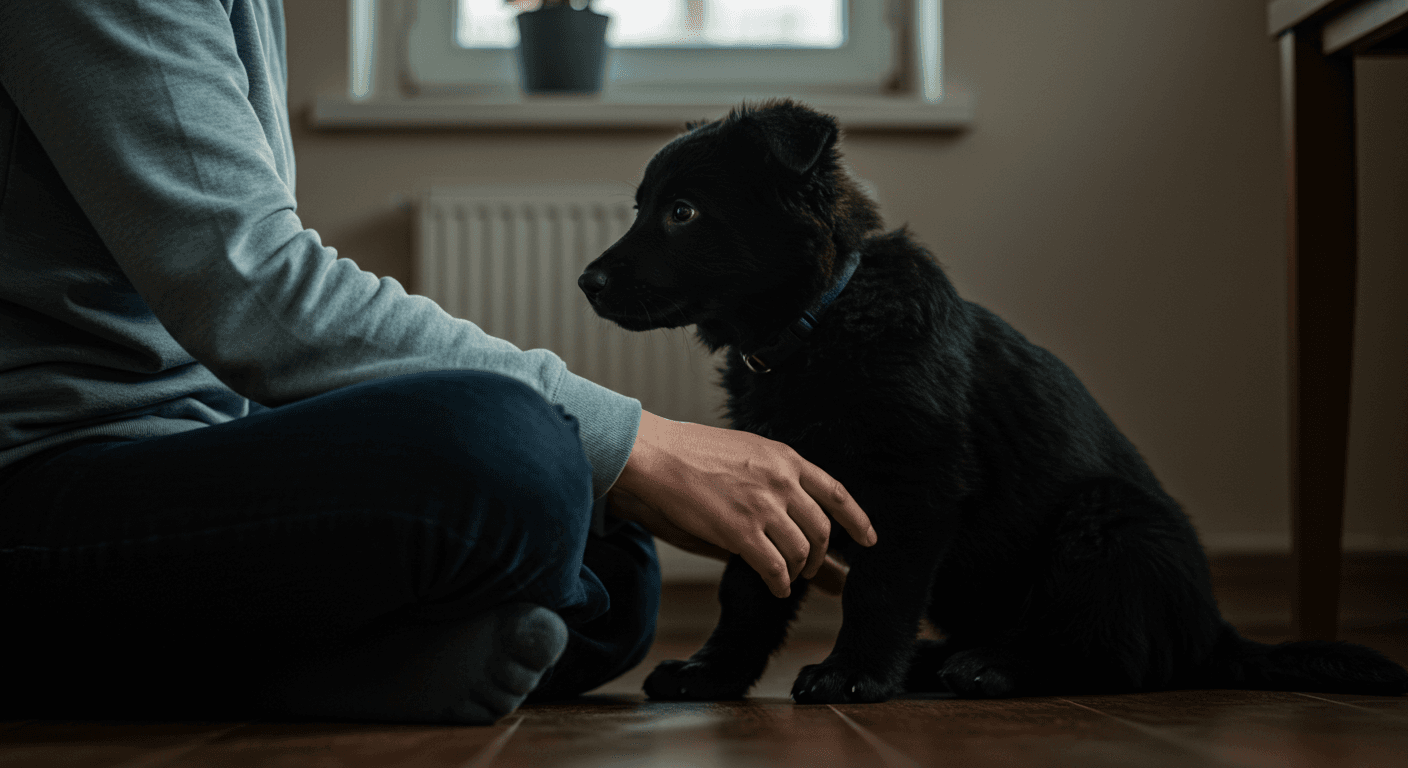
During puppy fear periods, it's just as important to know what not to do as it is to know the right steps to take. As a German Shepherd owner, you might feel concerned or even frustrated when your scared puppy suddenly backs away from a stranger or hides from a harmless object. But remember, these fear stages are completely normal. What matters most is how you respond.
Avoiding the wrong actions helps your puppy feel safe, builds trust, and prevents long-term anxiety. Making the wrong move can accidentally send the message that the world is scary and German Shepherds are known to remember! So let’s look at what not to do when you're supporting a fearful puppy.
- Don’t force your puppy to approach scary things – Dragging or pushing a scared puppy toward something they're afraid of can make the fear worse. Let them explore at their own pace.
- Avoid scolding or using a harsh voice – Yelling or sounding upset will only make your puppy more nervous. Keep your tone calm and reassuring.
- Don’t ignore signs of fear – If your puppy is acting differently hiding, barking, shaking they’re not “being difficult”; they’re likely going through a fear stage.
- Skip loud environments or new places when possible – During fear periods, especially with a German Shepherd, too much stimulation can overwhelm them.
- Don’t flood them with too many new people or dogs – Even if you’re excited for social time, your pup might not be ready. Slowly build experiences based on their comfort level.
- Avoid saying 'it's just a phase' and moving on – Puppy fear stages need attention and support, not neglect.
German Shepherd puppies want to trust their humans. By knowing what not to do, you can help your puppy feel safe and confident. These small actions make a big difference in how your GSD handles fear now and later in life.
When to Seek Help: Fear Period or Long-Term Issue?
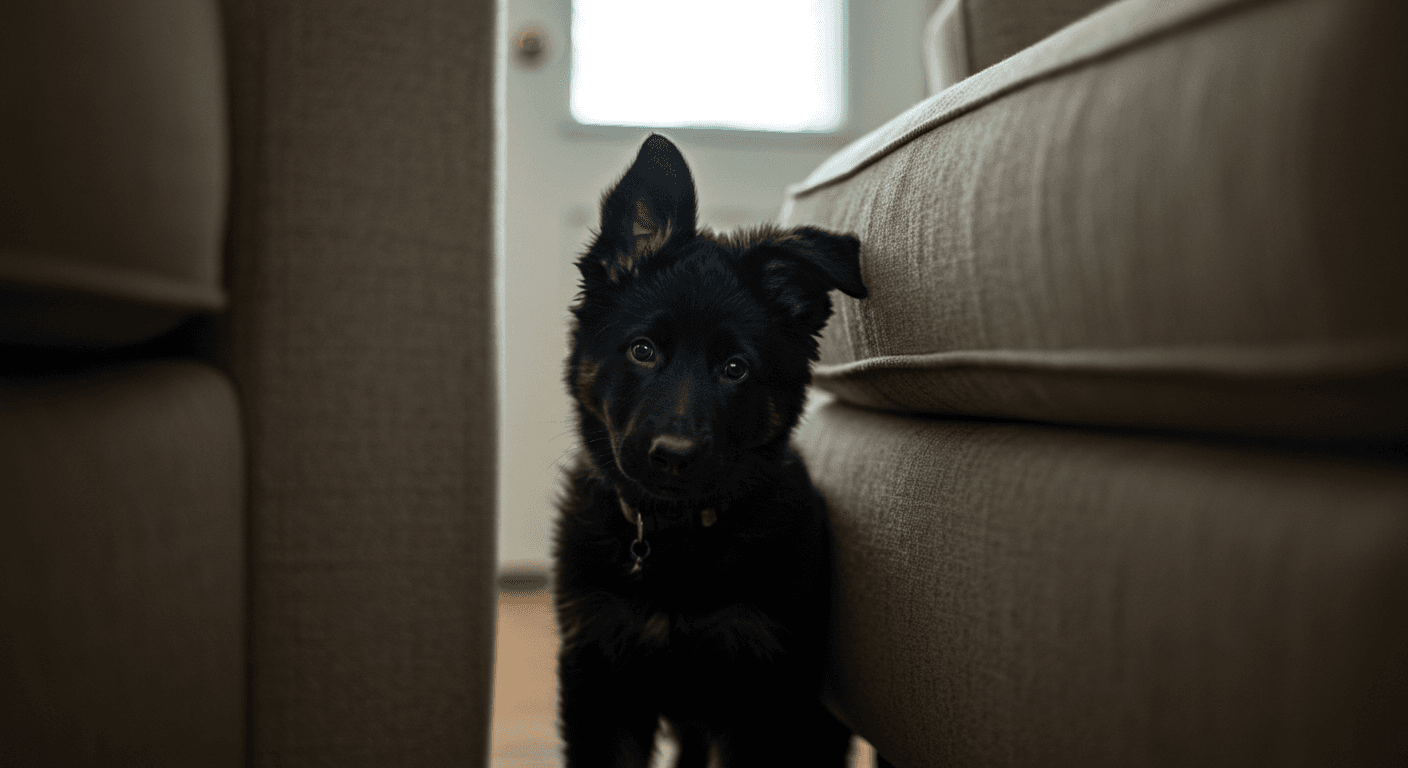
German Shepherds are known for being confident and loyal dogs, but that doesn’t mean they're fearless from the start. Puppy fear periods are normal parts of growing up. However, it's important to know when your GSD's fears are temporary or signs of something more serious.
During a fear period, your puppy may suddenly act scared of things they were once fine with. This might include loud noises, new places, or even friendly people. These fear stages usually happen around 8–11 weeks and again at 6–14 months. They don’t last long, usually just a few days to a couple of weeks. But how do you know if it’s just a puppy fear period or a deeper problem?
Watch your dog closely. If the fear goes away with patience and gentle exposure, it’s likely just part of the normal growth process. However, if your German Shepherd continues to act afraid of many things, even as they become an adult dog, it may be time to ask for help.
- Fear sticks around for a long time – beyond a couple of weeks.
- Your dog avoids normal activities – like walks or meeting new dogs.
- Fear turns into aggression – such as barking or snapping when scared.
- Your adult dog is still fearful – and doesn't show signs of calming down with training.
So if you're asking, "Why is my dog afraid of everything?", it might not be just a phase. If your pup’s fear is stopping them from enjoying life or bonding with you it’s smart to speak with a dog trainer or vet who understands German Shepherd behavior.
Remember, long-term fear can affect your dog’s health and happiness. Find help early to build your GSD's confidence and make them feel safe again.
Going through the puppy fear periods with your German Shepherd may feel tricky at times, but you’re never alone. These stages don’t last forever, and with the right support, your puppy will come through them stronger and more confident.
You’ve learned that puppy fear periods are normal and expected parts of your dog’s development. They usually show up between 8 to 11 weeks and again around 6 months of age. During these times, a once brave pup might suddenly act scared of things they’ve seen before. That’s your cue to stay calm, kind, and encouraging.
As a German Shepherd owner, staying patient and giving gentle guidance helps your fearful puppy feel safe. Avoid forcing your dog into scary situations, and instead help them feel that everything is okay. Using positive reinforcement and building trust are your strongest tools during the puppy fear stage.
Fear periods in dogs aren't something you can skip, but how you handle them makes a big difference. With love, time, and a steady routine, your pup will gain confidence and grow into a well-balanced adult German Shepherd.
In the end, being the best support during these phases means being your dog’s safe space. Keep learning, observing, and adjusting to what your pup needs. Trust yourself you’re doing an amazing job.
Fear Periods Explained: What Every Puppy Owner Must Know!



